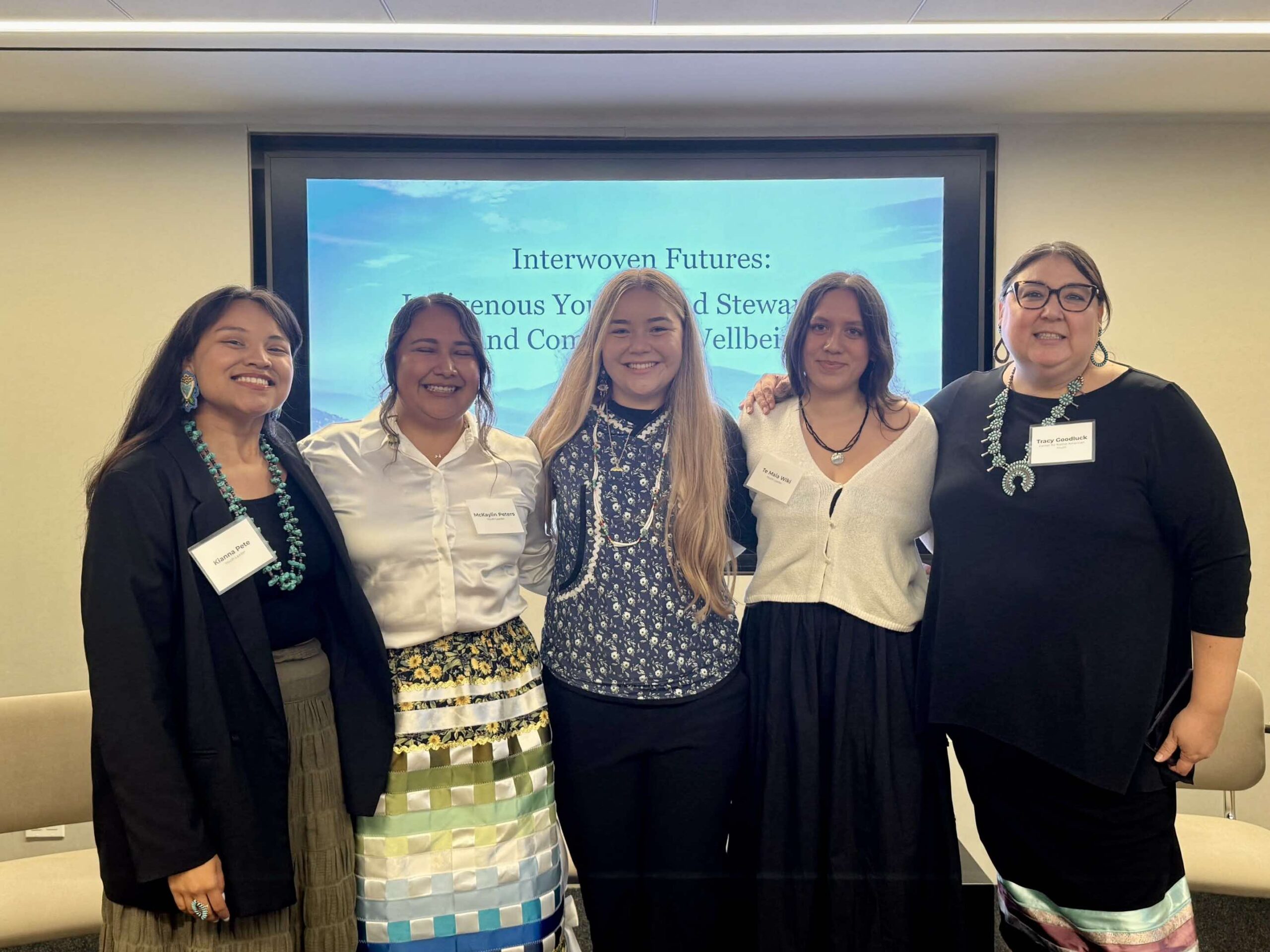Written by CNAY Senior Program Manager Katy Stewart
On August 20, 2025, the Center for Native American Youth (CNAY) proudly served as a cohost of Interwoven Futures: Indigenous Youth, Land Stewardship, and Community Wellbeing hosted in New York City at the Doris Duke Foundation’s DD Center.
This in-person gathering brought together Indigenous youth, philanthropy and organizations that work within Native communities – Aspen Forum for Community Solutions, Fresh Tracks and Native Americans in Philanthropy (NAP) – to explore how collaboration sparks bold ideas, amplifies youth voices, and ignites action for land stewardship, climate resilience and wellbeing. The convening highlighted the importance of bringing these voices together and collaborating across organizations to create space for co-creation, shared learning, and sustained investment in solutions that are youth-centered and community-driven.
CNAY’s Executive Director, Tracy Canard Goodluck, gave remarks alongside Juan Martinez of Fresh Tracks and Jeanette Ziegler of NAP. Tracy shared part of CNAY’s driving vision:
“Walking side by side with youth across the country, we know that culture is inextricably linked to the lands and the places we come from. Last year, we released Center Us and shared new data that shows that Native youth who are culturally educated are four times more likely to see themselves as leaders. That statistic is an important reminder to all of us: helping Native youth embrace their leadership potential requires supporting them to connect to their culture, their lands and their traditional resources.”

Three CNAY youth leaders also attended the event, speaking before the audience of philanthropy and organizations to uplift important messages. Tayler Higgins (’24 Champion for Change), Te Maia Wiki (’25 California Native Youth Collective) and McKaylin Peters (’24 Remembering Our Sisters) spoke truth to power. Tayler (Yup’ik, Dena’ina & Suqpiaq) urged those in the room to see Native youth not just as the recipients of their grant dollars, but as relatives and friends. Te Maia (Yurok & Maori) reminded the room that flying youth to events, such as this one, is just the starting point of meaningful engagement, not the end point. McKaylin (Menominee, Oneida & Forest County Potowatomi) closed out the evening with a call to action, reminding the room that funding aligned with culture, community and sovereignty leads to generational impact.
CNAY is committed to this learning journey moving forward and looks forward with continued engagement with all the partners in the room to reimagine trust-based philanthropy alongside Native youth.


 Democracy is Indigenous
Democracy is Indigenous